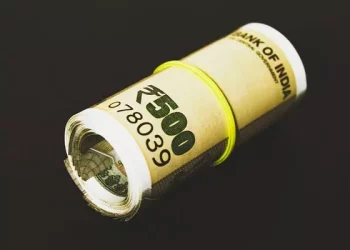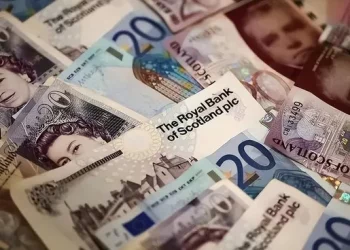Exchange rates represent the value of one currency compared to another. They fluctuate regularly due to a variety of factors such as economic indicators, market sentiment, political stability, and international trade balances. For travelers, investors, and businesses, understanding these fluctuations is essential to making informed financial decisions. In our case, converting Thai Baht (THB) to Hong Kong Dollars (HKD) requires awareness of the current market rate.
Typically, exchange rates are quoted as a pair, such as THB/HKD, which indicates how many Hong Kong Dollars one Thai Baht can purchase. These rates can be found on financial websites, forex trading platforms, or banks. Real-time data is especially important for those engaging in large transactions or cross-border investments.
Historical Context of THB to HKD
The relationship between the Thai Baht and the Hong Kong Dollar has experienced changes over the years due to both countries’ monetary policies and economic developments. Hong Kong pegs its currency to the US dollar, offering some stability, whereas the Thai Baht is managed under a floating exchange rate regime, subject to market dynamics.
In the past decade, the THB has seen both appreciation and depreciation against the HKD. Economic factors such as tourism, export performance, and interest rate differentials have influenced this movement. As such, those converting Baht to HKD should be aware of macroeconomic trends to anticipate potential gains or losses in currency value.
Current Exchange Rate: THB to HKD
As of the most recent data, the exchange rate for THB to HKD hovers around 0.22 to 0.23. This means that:
1 Thai Baht is approximately equal to 0.22 – 0.23 Hong Kong Dollars
Using this rate, we can estimate the value of 5000 Thai Baht in Hong Kong Dollars:
5000 THB x 0.22 HKD = 1,100 HKD
5000 THB x 0.23 HKD = 1,150 HKD
Therefore, 5000 Baht is equivalent to roughly 1,100 to 1,150 Hong Kong Dollars, depending on the exact rate at the time of conversion.
Factors Influencing the THB to HKD Exchange Rate
1. Economic Performance
- Thailand’s GDP growth, inflation rates, and export data can influence the Baht’s strength.
- Hong Kong’s economic stability, heavily tied to global trade and finance, impacts the HKD.
2. Political Climate
- Political stability in either country can boost investor confidence, strengthening the respective currencies.
- Conversely, unrest or uncertainty can lead to depreciation.
3. Central Bank Policies
- The Bank of Thailand and the Hong Kong Monetary Authority manage their respective currencies through interest rate adjustments and foreign exchange interventions.
- These policies directly affect currency supply and demand, hence influencing exchange rates.
Where to Check Live Exchange Rates
It’s crucial to consult reliable sources when checking exchange rates, especially for real-time information. Here are some commonly used resources:
- Commercial Banks: Provide up-to-date rates, though they may include service charges.
- Currency Exchange Websites: Sites like XE, OANDA, and X-Rates offer real-time data.
- Forex Trading Platforms: For investors, platforms like MetaTrader or TradingView give detailed analysis.
Always ensure you are looking at the buying or selling rate depending on your transaction type, as these can differ significantly.
Currency Conversion Methods
There are several methods to convert Thai Baht to Hong Kong Dollars, each with its pros and cons:
Bank Transfers
- Convenient but may involve higher fees.
- Exchange rates may not be as favorable as other methods.
Currency Exchange Counters
- Available at airports and commercial centers.
- Competitive rates, but caution is advised regarding hidden charges.
Online Currency Exchange Services
- Services like Wise or Revolut offer transparent rates and lower fees.
- Ideal for larger or international transfers.
ATMs Abroad
- Useful for travelers.
- May involve international withdrawal fees.
Tips to Get the Best Exchange Rate
To maximize your value when converting currency, consider the following tips:
- Compare Multiple Sources: Always check rates from various providers before converting.
- Avoid Airport Counters: These often have the least favorable rates.
- Use Currency Apps: Tools like CurrencyFair and Wise offer alerts and competitive pricing.
- Monitor Market Trends: Awareness of economic indicators can help predict currency fluctuations.
Use Cases: Why Convert Baht to HKD?
There are various practical scenarios where converting THB to HKD becomes necessary:
- Travel: Thai tourists visiting Hong Kong need local currency for transactions.
- Education: Thai students studying in Hong Kong often require regular fund transfers.
- Business: Thai businesses dealing with Hong Kong clients may need to convert currencies for invoices and payments.
- Investments: Currency conversions may be needed for asset purchases in Hong Kong.
Practical Example: A Traveler’s Perspective
Imagine a Thai traveler heading to Hong Kong for a week-long vacation. Budgeting is essential to ensure expenses are covered comfortably. If the traveler exchanges 5000 Baht before departure:
- At 0.22 HKD/THB, they receive 1,100 HKD.
- At 0.23 HKD/THB, they receive 1,150 HKD.
Their choice of exchange service could mean a difference of 50 HKD, which might cover meals or transport. Hence, shopping for the best rate is both practical and cost-effective.
Risks and Considerations
When converting currencies, certain risks and considerations should be kept in mind:
- Fluctuating Rates: Exchange rates can change within minutes. Lock in favorable rates when available.
- Hidden Fees: Always verify if there are service charges or commissions.
- Security: Use reputable services to avoid scams or counterfeit currency.
Conclusion
In today’s dynamic financial environment, staying informed about currency exchange rates is not just beneficial but essential. Whether you’re a traveler planning your next trip, a student funding your education abroad, or a business managing international payments, understanding the exchange rate between Thai Baht and Hong Kong Dollar can save you money and improve your financial planning. With the current rate ranging between 0.22 and 0.23, converting 5000 Baht offers you a practical range of HKD 1,100 to 1,150. By using reliable sources, comparing providers, and being mindful of hidden charges, you can ensure you get the best possible value for your money. Always take the time to research and plan ahead for smarter, more secure currency exchanges.
FAQ
Q1: Where can I get the most accurate exchange rate?
A: Trusted sources include central banks, financial websites like XE, and international forex platforms.
Q2: Can I exchange Baht to HKD in Thailand?
A: Yes, many Thai banks and exchange bureaus offer HKD. It’s often better to convert before departure.
Q3: What documents are needed for currency exchange?
A: Generally, a valid ID or passport is required, especially for larger amounts.
Q4: Is it better to exchange money in Thailand or Hong Kong?
A: Often, Thai exchange counters offer better rates for HKD than those found in Hong Kong.
Q5: How often do exchange rates change?
A: They can change multiple times a day based on market conditions. Always check rates before finalizing a transaction.
Related Topics:



























